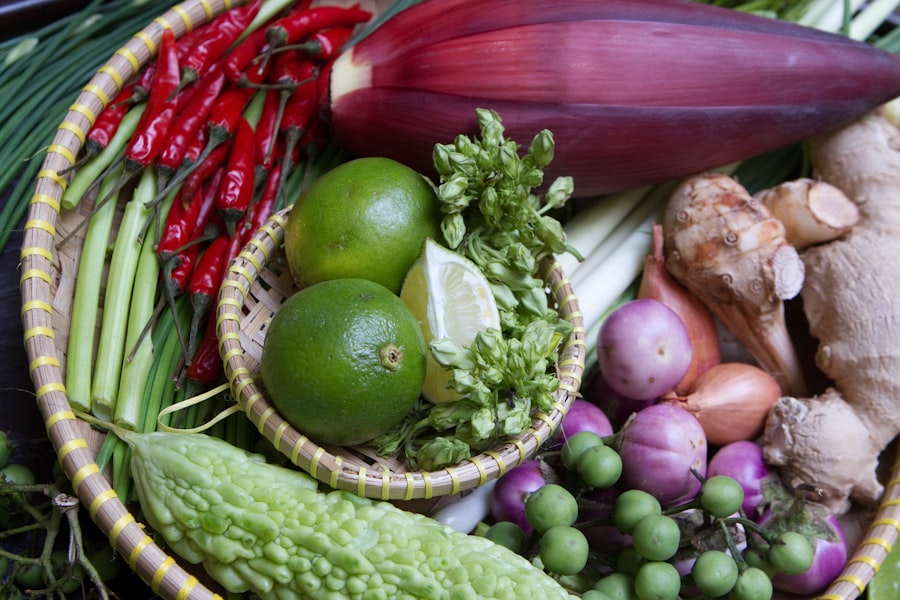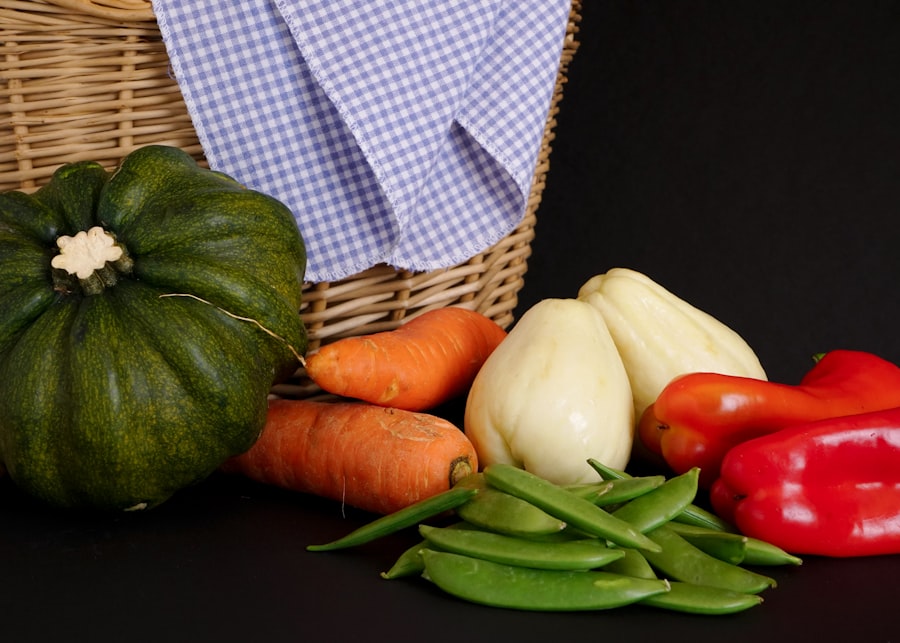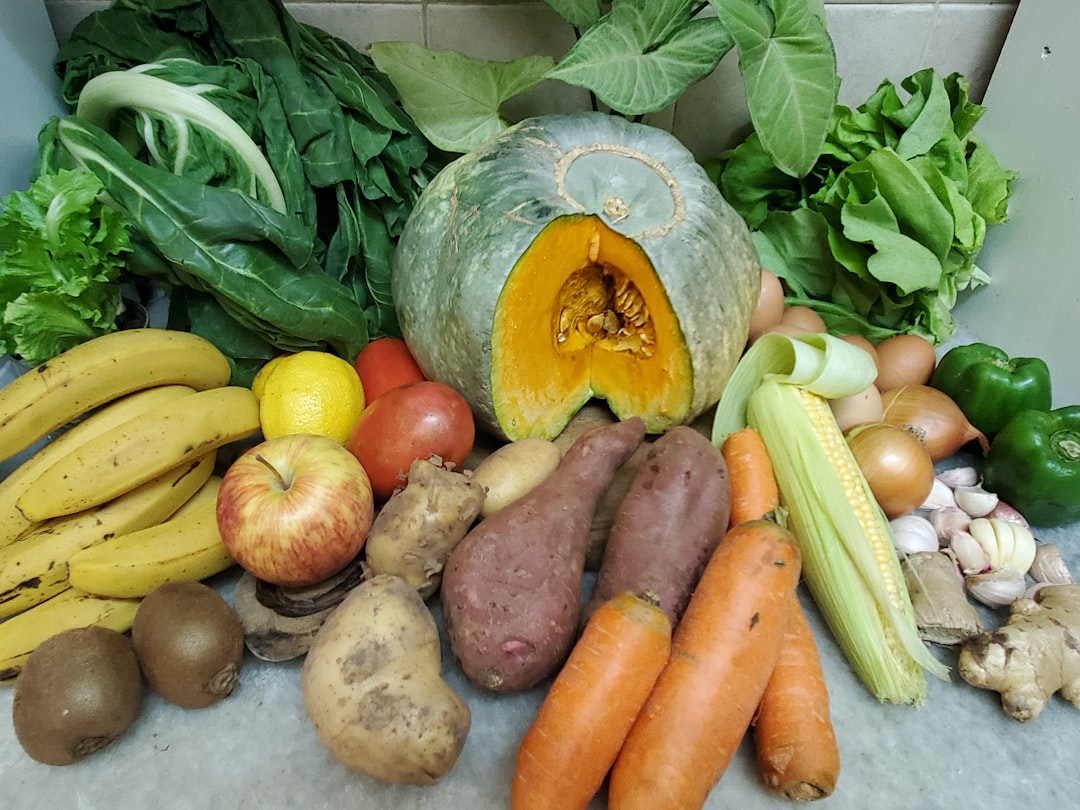Your liver is a vital organ that plays a crucial role in maintaining your overall health. It is responsible for filtering toxins from your blood, producing bile for digestion, and storing essential nutrients. Given its multifaceted functions, it’s essential to support your liver health through a balanced diet.
One of the most effective ways to do this is by incorporating a variety of vegetables into your meals. Vegetables are not only rich in vitamins and minerals but also packed with antioxidants and phytochemicals that can help protect and enhance liver function. In recent years, the connection between diet and liver health has gained significant attention.
Research has shown that certain vegetables can aid in detoxification processes, reduce inflammation, and promote overall liver wellness. By understanding the specific benefits of various vegetables, you can make informed choices that will support your liver health and improve your quality of life. This article will explore the remarkable benefits of vegetables for liver health, highlighting specific types that are particularly beneficial.
Key Takeaways
- Introduction to Liver Health and Vegetables: Vegetables play a crucial role in maintaining liver health and function.
- Benefits of Vegetables for Liver Health: Vegetables are rich in antioxidants, vitamins, and minerals that support liver detoxification and overall health.
- Leafy Greens: The Powerhouse of Liver Health: Leafy greens like spinach and kale are packed with chlorophyll and fiber, which aid in liver detoxification and bile production.
- Cruciferous Vegetables: Detoxifying Agents for the Liver: Cruciferous vegetables such as broccoli and Brussels sprouts contain compounds that support liver detoxification and protect against liver damage.
- Beets: The Liver Cleansing Superfood: Beets are rich in betaine and antioxidants, which help in liver detoxification and reducing inflammation.
Benefits of Vegetables for Liver Health
Incorporating vegetables into your diet can have profound effects on your liver health. One of the primary benefits is their high content of antioxidants, which help combat oxidative stress in the liver. Oxidative stress occurs when there is an imbalance between free radicals and antioxidants in your body, leading to cellular damage.
By consuming a variety of vegetables, you can provide your liver with the necessary nutrients to neutralize these harmful free radicals, thereby reducing the risk of liver diseases. Moreover, many vegetables are rich in dietary fiber, which plays a significant role in promoting healthy digestion and regular bowel movements. A well-functioning digestive system is essential for liver health, as it helps eliminate toxins from your body more efficiently.
Fiber also aids in maintaining a healthy weight, which is crucial since obesity is a significant risk factor for liver disease. By including fiber-rich vegetables in your diet, you can support both your digestive health and your liver’s ability to function optimally.
Leafy Greens: The Powerhouse of Liver Health

Leafy greens are often hailed as nutritional powerhouses, and for good reason. Vegetables such as spinach, kale, and Swiss chard are loaded with vitamins A, C, and K, as well as essential minerals like iron and calcium. These nutrients are vital for maintaining healthy liver function.
Leafy greens are particularly beneficial because they contain chlorophyll, which helps detoxify the liver by neutralizing heavy metals and other toxins. In addition to their detoxifying properties, leafy greens also promote bile production, which is essential for digestion and fat metabolism. Bile helps emulsify fats, making it easier for your body to absorb fat-soluble vitamins.
By incorporating more leafy greens into your meals—whether in salads, smoothies, or cooked dishes—you can enhance your liver’s ability to process fats and eliminate toxins effectively.
Cruciferous Vegetables: Detoxifying Agents for the Liver
| Vegetable | Detoxifying Agent | Benefits |
|---|---|---|
| Broccoli | Glucoraphanin | Supports liver detoxification |
| Kale | Glucosinolates | Rich in antioxidants |
| Cabbage | Glutathione | Reduces oxidative stress |
| Brussels Sprouts | Sulforaphane | Enhances liver function |
Cruciferous vegetables such as broccoli, cauliflower, Brussels sprouts, and cabbage are renowned for their detoxifying properties. These vegetables contain compounds called glucosinolates, which have been shown to enhance the liver’s detoxification enzymes. By increasing the activity of these enzymes, cruciferous vegetables help your liver break down and eliminate harmful substances more efficiently.
Furthermore, cruciferous vegetables are rich in fiber and antioxidants, making them excellent choices for supporting overall health. The combination of these nutrients not only aids in detoxification but also helps reduce inflammation in the liver. Including a variety of cruciferous vegetables in your diet can provide a powerful boost to your liver’s natural detoxification processes while promoting overall wellness.
Beets: The Liver Cleansing Superfood
Beets are often referred to as a superfood due to their impressive nutritional profile and numerous health benefits.
This increased bile production aids in digestion and helps eliminate toxins from the body.
Additionally, beets are rich in antioxidants and anti-inflammatory compounds that can help protect the liver from damage. The vibrant color of beets comes from betalains, which have been shown to reduce oxidative stress and inflammation in the liver. By incorporating beets into your diet—whether roasted, juiced, or added to salads—you can harness their powerful cleansing properties and support your liver’s health.
Carrots: Supporting Liver Function with Beta-Carotene

Carrots are not only a delicious snack but also a fantastic source of beta-carotene, a precursor to vitamin A that plays a crucial role in maintaining healthy liver function. Beta-carotene is known for its antioxidant properties, helping to protect liver cells from oxidative damage caused by free radicals. This protection is essential for preventing chronic liver diseases and promoting overall liver health.
Moreover, carrots contain fiber that aids in digestion and helps regulate blood sugar levels. Maintaining stable blood sugar levels is important for liver health, as fluctuations can lead to fat accumulation in the liver. By including carrots in your meals—whether raw in salads or cooked in various dishes—you can support your liver function while enjoying their natural sweetness.
Garlic: Boosting Liver Enzymes and Detoxification
Garlic is not only a flavorful addition to many dishes but also a powerful ally for your liver health. It contains sulfur compounds that activate liver enzymes responsible for detoxifying harmful substances from your body. By enhancing the activity of these enzymes, garlic helps your liver process toxins more efficiently.
In addition to its detoxifying properties, garlic has anti-inflammatory effects that can further support liver health. Chronic inflammation is a significant contributor to various liver diseases, so incorporating garlic into your diet can help mitigate this risk. Whether you enjoy it raw, roasted, or sautéed, adding garlic to your meals can provide both flavor and health benefits for your liver.
Turmeric: The Anti-Inflammatory Spice for Liver Health
Turmeric is a vibrant yellow spice known for its potent anti-inflammatory properties, primarily due to its active compound curcumin. This spice has been extensively studied for its potential benefits on liver health. Curcumin has been shown to reduce inflammation in the liver and protect against damage caused by toxins.
Moreover, turmeric may enhance the production of bile, further supporting digestion and detoxification processes. Incorporating turmeric into your diet can be as simple as adding it to soups, stews, or smoothies. Its warm flavor not only enhances the taste of dishes but also provides significant health benefits for your liver.
Artichokes: Promoting Bile Production and Liver Detoxification
Artichokes are often overlooked but are incredibly beneficial for liver health. They contain cynarin and silymarin—compounds known to promote bile production and support liver detoxification processes. Increased bile flow aids in fat digestion and helps eliminate toxins from the body more effectively.
Additionally, artichokes are rich in antioxidants that protect the liver from oxidative stress and inflammation. Including artichokes in your diet can be an enjoyable experience; they can be steamed, grilled, or added to salads for a unique flavor profile while providing substantial health benefits.
Broccoli: Supporting Liver Detoxification and Antioxidant Protection
Broccoli is another cruciferous vegetable that deserves special mention when discussing liver health. It is packed with vitamins C and K, fiber, and various antioxidants that contribute to its protective effects on the liver. The presence of sulforaphane—a compound found in broccoli—has been shown to enhance the body’s detoxification processes by activating enzymes that help eliminate harmful substances.
Moreover, broccoli’s high fiber content supports healthy digestion and regular bowel movements, further aiding in toxin elimination from the body. By incorporating broccoli into your meals—whether steamed, roasted, or blended into smoothies—you can enjoy its numerous health benefits while supporting your liver’s natural detoxification abilities.
Incorporating Liver-Healthy Vegetables into Your Diet
Incorporating a variety of vegetables into your diet is one of the most effective ways to support your liver health.
By understanding the specific advantages of these vegetables, you can make informed choices that will enhance your overall well-being.
To reap the maximum benefits for your liver health, aim to include a colorful array of vegetables in your daily meals. Experiment with different cooking methods and recipes to keep things interesting while ensuring you receive a diverse range of nutrients. By prioritizing these liver-healthy vegetables in your diet, you can take proactive steps toward maintaining a healthy liver and improving your overall quality of life.
Incorporating the right vegetables into your diet can significantly enhance liver health, as they are rich in essential nutrients and antioxidants that support liver function. For a comprehensive guide on the best vegetables to include in your diet for optimal liver health, you can explore this related article. This resource provides valuable insights into how certain vegetables can aid in detoxifying the liver and improving overall well-being.
WATCH THIS! 🧃The 60-Year Liver Lie: Why Your “Healthy” Juice Is Destroying Your Liver
FAQs
What are the best vegetables for liver health?
Some of the best vegetables for liver health include leafy greens such as spinach and kale, cruciferous vegetables like broccoli and Brussels sprouts, and root vegetables such as beets and carrots.
How do these vegetables benefit the liver?
These vegetables are rich in antioxidants, vitamins, and minerals that help support liver function and promote detoxification. They also contain compounds that help reduce inflammation and protect liver cells from damage.
Can these vegetables help prevent liver disease?
Eating a diet rich in these vegetables, along with other healthy lifestyle choices, can help reduce the risk of developing liver disease. However, it’s important to consult with a healthcare professional for personalized advice.
How should these vegetables be prepared for maximum liver health benefits?
To maximize the liver health benefits of these vegetables, it’s best to consume them in their raw or lightly cooked form. This helps preserve their nutrient content and bioavailability.
Are there any vegetables that should be avoided for liver health?
While most vegetables are beneficial for liver health, it’s important to limit the consumption of starchy vegetables like potatoes and corn, as well as vegetables high in added sugars or unhealthy fats. It’s also important to avoid vegetables that have been heavily processed or fried.
